
OLYMPIA, Wash. — It appears that Washington wineries are on their way to being able to operate as many as four tasting rooms.
However, prospects look grim for a proposed tax break for small wineries.
Overall, nine legislative subjects were introduced this session that could affect the state’s wine industry. Six are still alive, and three appear dead.
Two of the bills have strong marketing features which Josh McDonald, executive director of the Washington Wine Institute, said will be important to the state’s wine industry.
One bill would help wine auctions. The other would create a state tours marking committee.
Here is a rundown of the bills:
Expanding allowed tasting rooms to 4

House Bill 1038 by Rep, Cary Condotta, R-Wenatchee, would increase the number of allowable off-site tasting rooms per winery from two to four under a domestic winery license. Sen. Judy Warnick, R-Moses Lake introduced an identical bill — Senate Bill 5251 — in the Senate. The House bill passed 94-4, while the Senate bill passed 44-5 — indicating an easy path to the governor’s signature.
In 2000, a change in state law allowed Washington wineries to open satellite tasting rooms. Before then, the only way a winery could operate an additional tasting room was to have wine production on the premises. The change in 2000 provided wineries with the opportunity to have up to two tasting rooms in addition to their main production facility. Wineries didn’t begin to take advantage of the new law until a few years later.
Several weeks ago, Condotta contended that wineries – especially small ones – need the extra tasting rooms to expand their customer bases. That bill began its journey in 2015, but it stalled prior to a House floor vote. The House passed the same bill 92-6 in 2016, but it was never scheduled for a Senate commerce committee vote.
If this legislation is signed into law, the ball will be in the wineries’ courts because then they will need to raise the money to expand the number of tasting rooms, McDonald said.
The bills also require the state government to submit a report to the House Technology & Economic Development Committee every two years regarding the number of new wineries opening in Washington. The first report would be due June 30, 2019.
No state tax for small Washington wineries
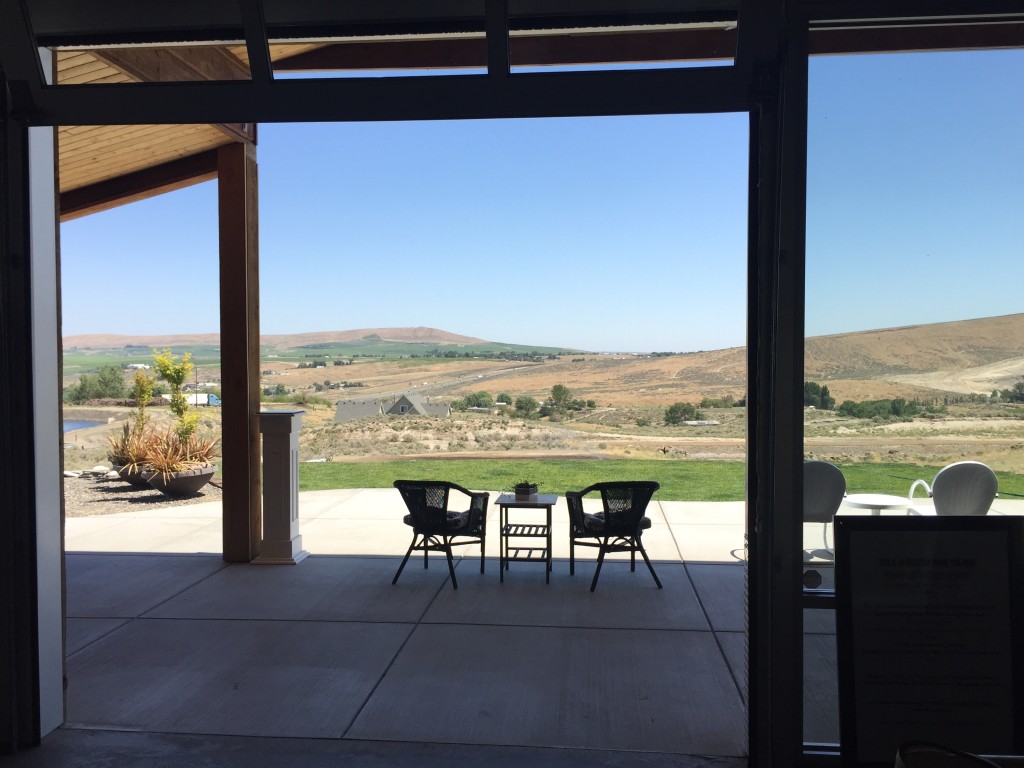
Wine producers are taxed at a rate of almost 23 cents a liter for table wines and a little more than 45 cents a liter for fortified wine. Senate Bill 5427 and an identical House bill would have removed the tax on the first 20,000 gallons that a winery produces annually. That equates to about 8,400 cases of wine.
If the bill becomes law, the tax break would cost the state about $2 million each year. Washington wineries pay one of the higher tax rates in the nation,
Neither bill made it out of committee this year, but that may not mean the end. Since the bills involve tax breaks — meaning they are budget-related bills — they are still technically alive, even if there appears to be a lack of early legislative support. Since the Legislature is clashing over huge education funding requirements ordered by the state supreme court, Olympia observers are pessimistic about any tax breaks passing this session.
Tourism marketing authority remains alive
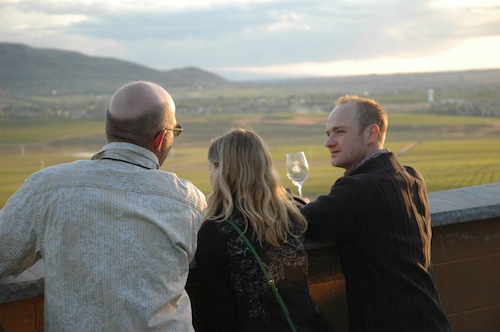
Washington is the only state that does not have a statewide tourism marketing program. Such a program would go far in attracting more people to the state’s wineries, McDonald said. A few weeks ago, Kris Watkins, executive director of Visit Tri-Cities echoed that sentiment.
The House bill on this topic died in committee, but an identical Senate bill is alive in the Senate Ways & Means Committee.
The bill would create the Washington Tourism Marketing Authority, whose efforts would be paid by rerouting 0.1 percent of the retail sales taxes collected on lodging, car rentals and restaurants. The program would have an upper limit of $5 million.
The bills would create the marketing authority that would manage the state revenue and the contracts for state tourism marketing efforts. It would be controlled by a 13-person board of four legislators and nine representatives from tourism-related businesses. Geography, business sizes, gender and ethnicity would be factors in making appointments to the board.
if passed, the law would go into effect on July 1. A progress report to the governor and Legislature would be due by Dec. 1, 2018. Recent testimony before the appropriate House and Senate committees showed wide support and no opposition to the bills.
Winery support of private auctions for charities
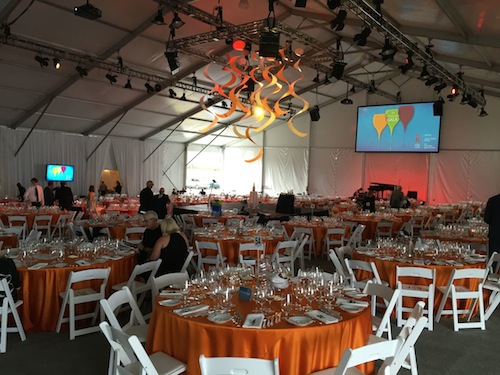
McDonald contends this is an under-the-radar bill that could significantly help promote the state’s wine industry.
Right now, when private auctions are held, each participating winery must fill out paperwork and pay a $25 fee to the state Liquor & Cannabis Board. That can get complicated and unwieldy if 70 wineries are participating.
Bills sponsored by Rep. Bill Jenkin, R-Prosser, and Sen. Sharon Brown, R-Kennewick, would change that requirement. Only the nonprofit organization staging the private auction would be required to fill out the permit and pay the $27 fee to the state.
Grocers, restaurants and private collectors buy the wines at auctions — which are also marketing Washington wines to out-of-state buyers.
The Senate bill passed 48-1 and the House bill passed 97-0.
Special license for nonprofits to sell on premise
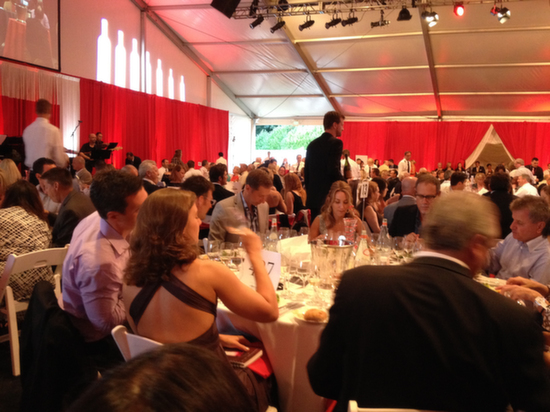
The Senate passed that bill 39-8 and it is working its way through the House. The bill by Sen. Curtis King, R-Yakima, would allow a licensed domestic winery to sell wines of its own production at retail, and for off-premises consumption, at licensed special occasion events hosted by nonprofit organizations. The winery would have to obtain a license endorsement from the Liquor and Cannabis Board.
All wines must comply with regulations regarding direct sales of wine to consumers. The wine sold at a special event is not resold.
Expansion of theaters to serve wine, alcohol
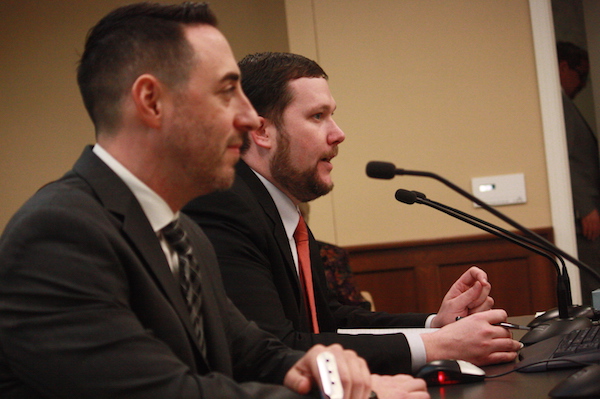
A bill by Sen. Karen Keiser, D- Kent, would remove several restrictions on theaters being allowed to serve wine, beer and other alcohol.
Right now to be eligible for a license to serve wine and alcohol, a theater must not have more than 120 seats per screen. And it must be able to prepare and serve complete meals, as well as provide tabletop accommodations for in-theater dining.
Also, if minors are allowed in such a theater, that establishment must have an alcohol control plan approved by the Washington Liquor and Cannabis Board. Nine theaters serve wine under the current law.
The Senate passed the bill 36-13, and it is now going through the House.
Serving wine in growlers
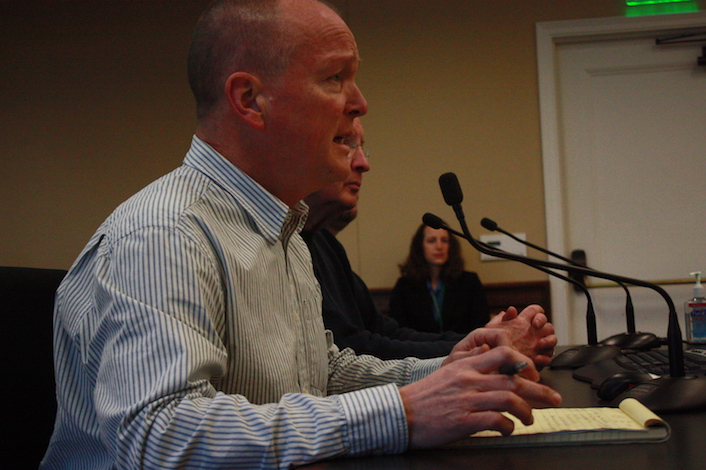
House Bill 1039 and Senate bills both died in committee. They would have allowed restaurants and other non-winery establishments that are allowed to sell beer or cider in growlers to also be permitted to sell wine in growlers.
Allowing wine merchants to sell state-licensed spirits
House and Senate bills on this subject both died in committee.
Expansion of credit card fees
A credit card fee to allow a licensed distributor of spirits or wine to impose a credit card fee on a purchaser licensed to sell spirits or wine.
The Senate and house each unanimously passed identical bills to allow this, which essentially means this legislation is a sure thing. A distributor’s small profit margin, coupled with swallowing an reimbursed credit card fee, is what prompted the bills.

Leave a Reply